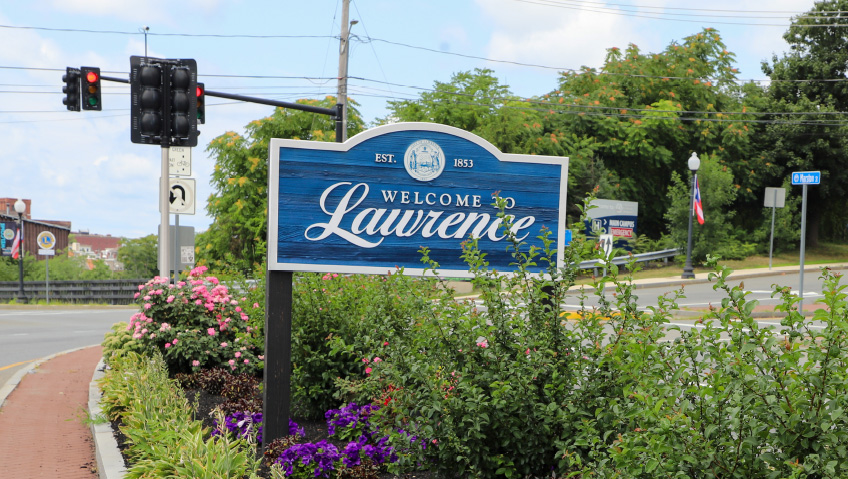With a population of over 91,000 at the time of the last census—the second largest in the state—Nashua, New Hampshire is a thriving city located 45 minutes from Boston and 60 minutes from the seacoast of New Hampshire. As a community of growth, experimentation, invention, enterprise, variety, culture, tradition, and youth, Nashua has a legacy of a 19th-century New England manufacturing village that, until recent decades, was encircled by 30 square miles of farms, meadows, and woodland. Grand historic structures, a downtown area, classic parks, and more rural and modern suburban communities are all found in Nashua today.
The city has numerous exciting projects planned, including its new business accelerator program, CO.STARTERS, a entrepreneurship development group that has helped more than 19,000 entrepreneurs since 2008 navigate their startup journeys via courses, peer groups, expert advice, and local partners.
“We’ve contracted with CO.STARTERS to come in and train local facilitators to then put on a boot camp and accelerator 10-week program,” explains Liz Hannum, Director of Economic Development. This includes a weekend ideation session—vetting the idea for a business—which Hannum hopes to get 20 people through, along with a 10-week intensive program for 10 people, which is essentially the idea or pivot point or new venture within an existing business. “It doesn’t necessarily have to be a brand-new business, but [we focus on] younger or pivoting businesses, featuring speakers or mentors every week talking about different topics.”
Essentially, CO.STARTERS is building 10 different contacts within the community of business, and offering the program in English, Spanish, and Portuguese all at the same time. “We’ve got an interesting setup that we’re going to try and see if it works,” Hannum says. “But it’s going to be so that we don’t have to do it in English and then translate and then translate again. We’re doing essentially a Zoom version, so everybody’s in the class, but they put on their headphones and they get to hear it in their native language. I don’t know if it’s going to work, but we’re certainly going to try.”
Slated to start sometime in the spring, Hannum is currently hiring for the position of who will run the program, reaching out to a variety of non-traditional business owners who can offer the programs in multiple languages.
Other plans include a two-mile boardwalk along Nashua’s riverfront which will surely enhance beauty and bring in new visitors.
“I’m so super excited about this one,” says Hannum. “Essentially, the mills have owned the riverfront for 200 years, and we’re finally taking it back as public space. We have an entertainment pavilion and several parks, with the boardwalk looping all the way around the river. Open already is the ADA wheelchair ramp, and we’re hoping to do a River Fest. We have a kayaking group in town that puts on a parade in their kayaks, a light parade in the winter, and a Halloween costume parade in the fall.”
The goal is to activate that space, to get it going in exciting ways in order to urge people to come visit and patronize businesses downtown, she adds. There will eventually be a whole two-mile loop, but this is currently phase one, planned to be ready in spring of 2025, with approximately eight more months of construction.
“I’m really excited about it,” says Hannum. “Being able to use the riverfront is fairly unusual in New England. Most New England towns kind of built along a river, but then the riverfront was either used as a business, like the mill, or [the town was] built further away from the river.”
This means Nashua will be one of the first communities to boast such an attraction, along with Boston, Cambridge, and Providence, Rhode Island, who have also managed to reclaim their riverfronts. “But we’ll be one of the first ones in New Hampshire to reclaim that space and make it active for the public.”
The exciting recent restart of the commuter rail project has also had a significant impact on the city’s future and on the day-to-day lives of its citizens. The planned route will travel from Lowell, Massachusetts to Nashua, New Hampshire along around 10 miles of MBTA rail. In addition to bringing numerous beneficial economic and social effects, it is likely to reduce traffic on the southern New Hampshire roads that connect Massachusetts, increasing the likelihood that young professionals will relocate to the Granite State.
By enhancing the current rail line and linking passenger service at Lowell, which currently provides MBTA service into Boston, the idea would effectively aim to restore passenger service. 10 miles of track between Lowell and Nashua would be studied.
“They’re actually doing a Nashua-first model,” says Hannum. “Its initial operating segment will be from Lowell to Nashua… The first segment is about 13 miles total, and we have engaged contractors to start looking at ridership opportunities and actual numbers of what it would cost.”
Phase two of that project is looking for grants and federal money to start actually building it. Initially thought to include a layover station in town, it turns out MBTA, who would be the operator, is going to build a layover station fairly close in Billerica, meaning Nashua wouldn’t have to do one of its own for this initial operating segment,” Hannum explains. “This will mean half the cost, maybe even less than half the cost. And we’re already estimating that we’ll have maybe 70 percent of the ridership that they thought would be all the way up to Manchester,” she says.
It seems like it’s going to be worth pursuing, she adds, especially since Nashua was just designated, with Manchester, as a tech hub by EDA, the Economic Development Administration. “We’re looking at potentially a new industry in the area that could represent 5,000 to 10,000 employees in the next 10 years. Public transportation is going to be the main support in that, because traffic is going to get worse if we don’t support public options.”
Rail travel is something that people in Nashua have been asking for, and an important factor in moving forward. With public transportation being such an important part of any development of an urban area, it’s especially vital to not put more cars on the road if it’s possible to avoid.
“Rail trail will be environmentally friendly. It will be less frustrating to drive yourself, I think,” says Hannum. “People, especially people from Nashua, will use it. We already have some data on it; we have a bus system, a $20 bus into the Boston Airport, and that is very well used. It goes straight into Boston. So I think that we’ll see a lot of users.” With a burgeoning population that travels for work, and a desire to avoid road traffic whenever possible, the commuter line is definitely something that will be well used for residents who both need and want it.
Other Nashua local tourism highlights for Hannum include the city’s recent $25 million, 750-seat Nashua Center for the Arts, built after two decades of planning. “It’s just about a year old now, and so we’re starting to see actual tourism, zip codes from outside of our community,” Hannum says. “We hope to keep building on that and see some tourist dollars being spent in our community, and I think that building that out in the future is going to be really important.”
The Center for the Arts was both a huge challenge and a significant accomplishment, she adds. Built to help create a healthier and stronger downtown economy, all while supporting local businesses and bringing in tourists, the Center’s planned venue for plays, music, and community events is geared for success.
Local challenges include housing, of course, adds Hannum. “But I think, for us, we have done a really good job of streamlining the process to build new housing. We’ve worked really hard to make that as smooth as possible and still provide the safety and infrastructure, all of those things that are required,” she says. “I think housing is huge, but it has been a good accomplishment. We have about 2,000 units that have been approved to build right now, and we have maybe 3,000 elsewhere in the process as well.”
However, the city has also seen spectators that go through the process and then want to sell their entitlements, so they’ve been sitting on those approvals. “If we can get developers that actually want to build, that would be good. I think housing is an issue everywhere; it’s crazy, so we really tried to make it easy. We would love to recruit new developers who actually want to do the project.”
With everything Nashua has to offer, there’s no doubt developers will continue to gravitate toward a location dedicated to not only improvement for its residents, but for businesses and local culture as well.
“Along with our smaller businesses, we have lots of really strong industry happening in town,” says Hannum. “We’re doing a lot of huge public improvement processes with the riverfront, which is a 20-year process. We’ve been investing quite a bit in making this a better place to be and I think we’re building a lot of momentum at the moment.”






